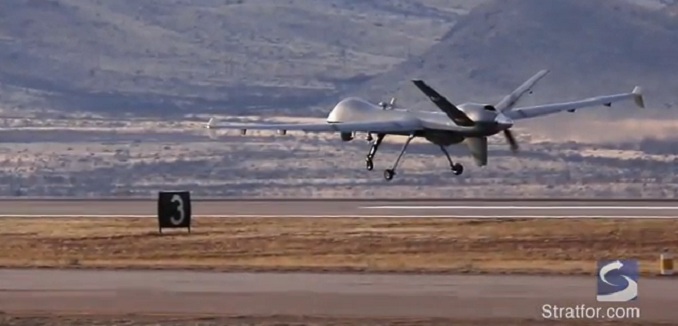Observers are issuing increasingly sharp warnings that instability in Yemen risks becoming endemic, nearly two years after the fall of Yemen’s then-dictator Ali Abdullah Saleh. A transition sponsored and supported by the Gulf Cooperation Council (GCC) has been halting, and the country’s political situation is complicated by at last two insurgencies.
In the south there has been an ongoing Al Qaeda terror campaign, led by “general manager” Nasser al-Wuhayshi, targeting government and military institutions. An air strike in Yemen yesterday killed three suspected Al Qaeda-linked militants. Sana’a pointedly rejected responsibility:
A Yemeni official said the government had not carried out any strikes in the area. Both the official and the witnesses spoke on condition of anonymity because they were not authorized to speak to the media. The United States has regularly carried out drone strikes in Yemen, escalating the rate of attacks in the last year. Washington rarely confirms individual strikes.
Today Yemeni security officials announced that troops had clashed with and arrested Al Qaeda fighters, including a woman battling on behalf of insurgents:
The officials said a raid on two houses in the Hadramwat province sparked clashes that lasted for over an hour. They said suspected female militants in one of the houses in the city of al-Shahr fired assault rifles and rocket-propelled grenades at the military force during the fighting. The officials said several women and children and at least one male militant were arrested at the end of the raid, but did not give an exact number of those arrested. Officials said the women are believed to be Saudi nationals, who make up a large part of the militant group.
In the north, meanwhile, attacks are being staged by the Iran-backed Houthi separatist movement, which also opposes Yemen’s central government. Iran’s interference in Yemen’s affairs has brought rebukes from Yemen’s highest echelons. Foreign Minister Abu Bakr al-Qibri, both during a speech before the United Nations General Assembly in September and more recentlyin an interview, blasted foreign interference.
Earlier this month USA Today conveyed reports that Iran’s Lebanese terror proxy Hezbollah was also involved in destabilizing the country.
Yemen has sometimes sought to coopt al Qaeda to battle Shiites in the country, and earlier in November Houthis and Salafists battled each other in the northern province of Sa’ada. Nearly a week of fighting claimed 100 lives.
[Photo: STRATFORvideo / YouTube]




